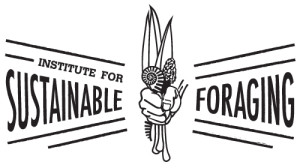National Study of Ramps Adds Additional Northern Michigan Sites
Northern Michigan has added additional sites in Benzie, Leelanau and Wexford counties to a national study of ramps/wild leeks that is being conducted through a partnership with Virginia Tech, the U.S. Forest Service and the Institute for Sustainable Foraging. The study, the first of its kind conducted in multiple states, is designed to examine the long-term impact of ramp harvesting on plant populations in an effort to better understand what methods and other factors may be necessary to insure the sustainability of plant populations over time. In addition to revisiting research sites established last year, the partners added sites on the Huron-Manistee National Forest, a Leelanau Conservancy Preserve and a woodlot owned by Food For Thought.
Dr. Michelle Baumflek, an Ethnobotanist, along with Dr. James Chamberlain, a Research Forest Products Technologist, both from the Southern Research Station of the U.S. Forest Service, have been engaged for the last two weeks in revisiting and establishing study plots in northern Michigan where ramps have been traditionally and will continue to be harvested for commercial purposes. These sites will also be studied in subsequent years to examine the effect that foraging may have on plant populations, density, size and other factors in an effort to determine how they may be sustainably harvested.
“While trained as a traditional forester, it didn’t take long for me to take an interest in all the other products, aside from timber, that our forests produce and that people find useful,” says Dr. Chamberlain, “Being close to Appalachia, ramps were of particular interest due to their long role in the culture of the people of that area. I’ve been studying them for over 15 years now and we still need more specific botanical information. This study will help to get that.”
Dr. Baumflek spoke to her excitement of seeing the prolific nature of the ramp patches in northern Michigan. “In North Carolina, where I’ve been doing much of my work, ramps rely on altitude and other unique factors to grow, make their distinct areas smaller and more confined than here in this part of Michigan. It’s amazing to see such large and healthy populations of ramps covering the forest floor in a given area like you have here in Michigan.”
The research will also help to inform the Standards and Practices for the Institute’s “Certified Sustainably Foraged” program.



